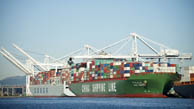Understanding Maritime Transportation
Maritime transportation is a vital component of global trade, enabling goods and products to be moved efficiently across the world. It involves the movement of goods by sea, utilizing ships, ports, and logistics to ensure timely delivery. The process includes loading, unloading, and maintaining the vessel, ensuring safety and reliability.
Key players in maritime transportation include shipping companies, ports, and cargo management firms. These entities work together to streamline operations, optimize routes, and minimize costs. Advanced technology, such as GPS and automation, enhances efficiency and reduces risks associated with maritime travel.
The benefits of maritime transportation include reduced carbon emissions compared to air travel, connectivity between remote regions, and cost-effectiveness for large-scale shipments. However, challenges like weather conditions, port congestion, and regulatory issues can impact delivery times.
Looking ahead, the future of maritime transportation is expected to focus on sustainability, AI-driven decision-making, and electric ships. These advancements will further strengthen the role of sea transport in global logistics.
Maritime transportation is a cornerstone of modern commerce, ensuring goods reach their destinations efficiently while contributing to environmental sustainability.
